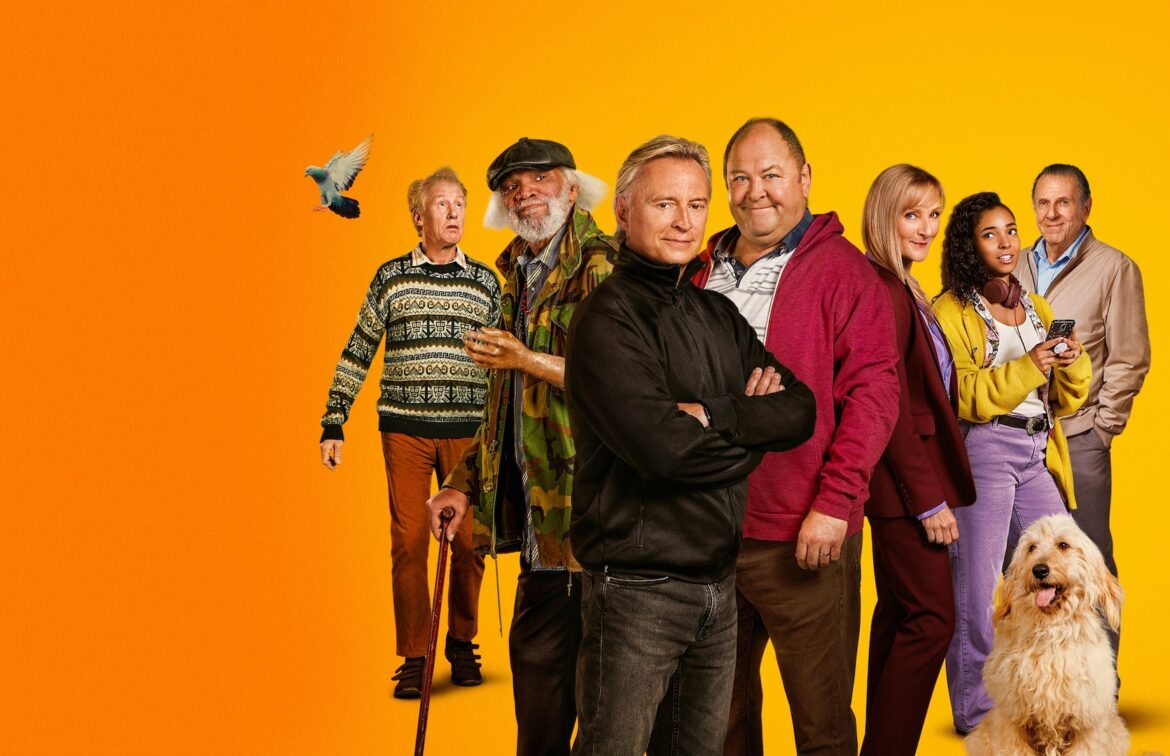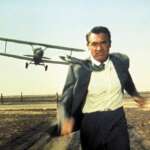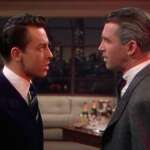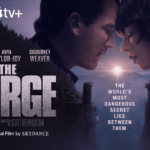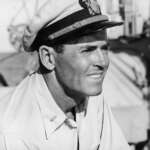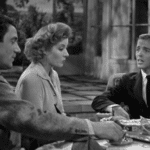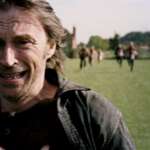To say that The Full Monty was a phenomenon when it came out in 1997 is a bit of an understatement. Even before I myself had watched it I’d heard of its success, and I saw the trailer repeatedly on the TV Guide channel. British films were having a bit of a moment in the 1990s, kicked off by Four Weddings and a Funeral and winding down around the time of Gosford Park. The Full Monty wasn’t like the rom coms of the era though, as it totally a more honest tale of economic unfortunate in Britain. The Full Monty also wasn’t like the film Trainspotting, which also one could say highlighted economic woes, but in a much darker manner. No The Full Monty always had a lot of heart on its sleeve, even when those sleeves were being removed in one of the most iconic dance scenes in film history.
To revisit The Full Monty, as Simon Beaufoy and Alice Nutter have done with their new TV series on FX on Hulu, is to revisit then hallowed ground at least in Gen-Xers and millennials memories. Expectations abounded and quite early on it appeared that with a 68% critic rating and a 72% audience score on Rotten Tomatoes that not everyone was as on board with the new series. However to this critic I would attest this is actually one of the greater adaptations in recent years, as it clearly understood the source material, and more importantly the characters, and it gave them a trajectory that fits them and also fits modern day life.
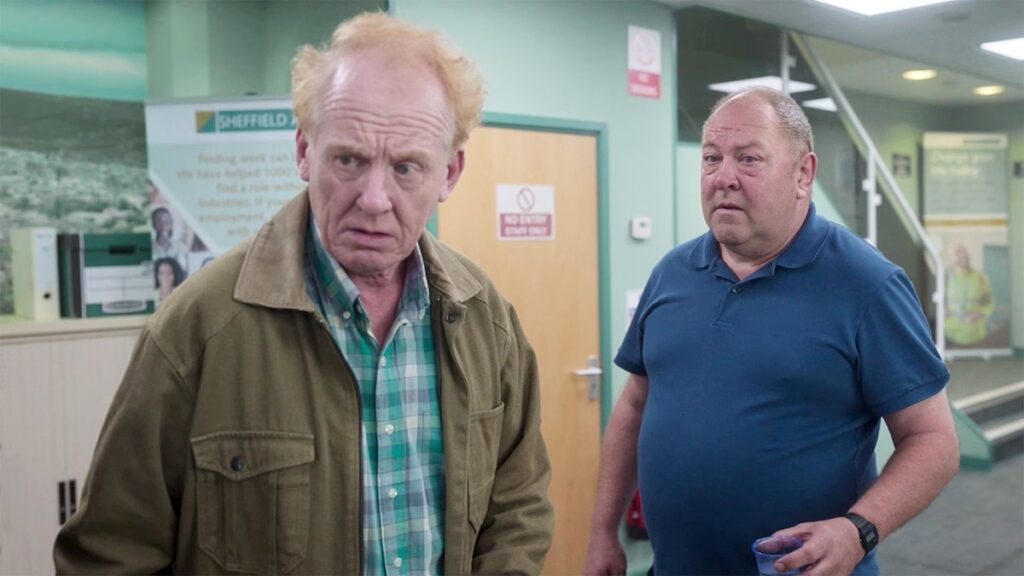
Steve Huison as Lomper and Mark Addy as David “Dave” Horsfall (Ben Blackall/FX)
Starting out we’re introduced once again to Robert Carlyle’s “Gaz”, who fans of the film may remember as one of the instigators of their stripping career. Gaz’s life does not seem to have progressed as he might have hoped; however, Gaz now is father to a daughter, whose rebelliousness matches her dad’s, and a son whose the polar opposite as he’s chosen a career as a policeman. His friend and fellow dancer Dave is now a school caretaker, while his wife Jean, whose romance we first saw in the original film with Dave so sweetly, is now the head of the school though the romance has simmered over the years. Lomper, played by Steve Huison, is now married to Dennis, played by Paul Clayton, and together they run a café, though it seems Lomper’s always dissatisfying Dennis whose taskmaster ways come off gruff. Lastly (for we get hardly any comparable screen time from Tom Wilkinson and Hugo Speer) we are also reunited with Horse, played by Paul Barber, who didn’t get to shine nearly as much in the film; however, stands out as a down on his luck man fighting with British social services for his disability payment.
All together none of them have the lives they might have hoped for – at least economically speaking certainly, and fans of the film in particular might have hoped after the downturn in the economy in the film they all would eventually find good jobs again. However I think this is a truer portrayal of life even in a society unlike our own that has more social services, for a few of them found good livelihoods, even if they don’t make a lot of money and are disrespected as is the case with Dave, while others like Horse represent what its like when society fails us altogether.
In addition to these original characters and their struggles we are also presented to a number of new characters including Gaz’s kids, of which his daughter Des, played by Talitha Wing, gets the most screen time along with her friends, as well as the previously mentioned Denis, and along with Darren, played by Miles Jupp. Des is the best look at what we see life can be like growing up underprivileged in modern day Britain, and sadly it often mirrors her Dad’s own experience. On the other hand Darren, whose one of the few truly well-to-do characters in this series, but is still friends with the core cast, serves as a tool to examine privilege when he at first pisses off, and ultimately befriends, Kurdistani refugee neighbors, including Silva played by Halima Ilter. There’s always pressure on new cast members in a beloved world; however, they all are played excellently and the introduction of Silva, Des, Denis, and Darren help broaden out the perspectives of life in this community.
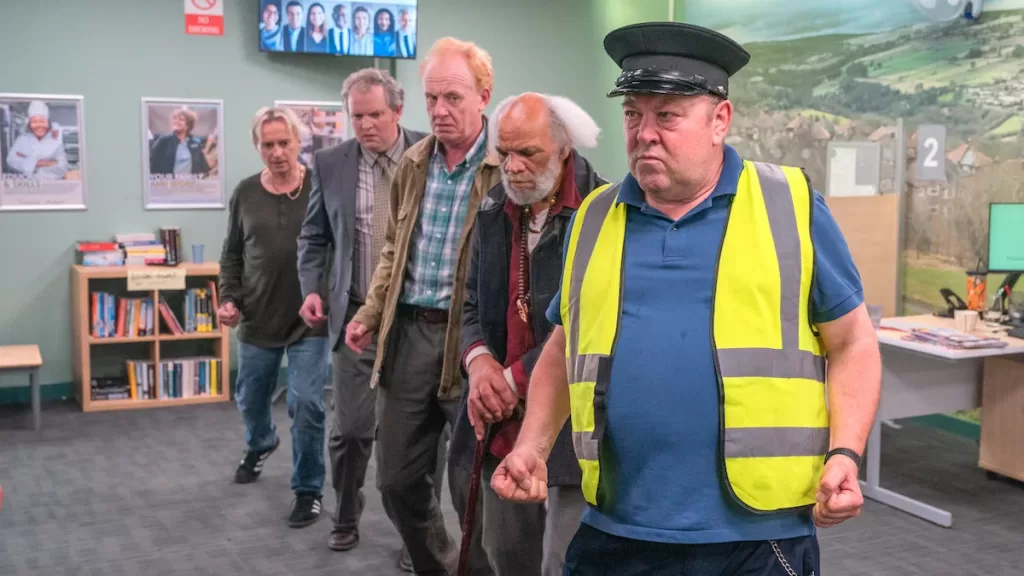
Robert Carlyle as Gaz, Miles Jupp as Darren, Paul Barber as Horse, Mark Addy as Dave in The Full Monty “Welcome to the Job of your Dreams” Episode 6: (Ben Blackall/FX)
Together all these characters are allowed room to breathe in this new series, and its almost like an anthology style how its portrayed. I’d say this is perhaps only second to Reservoir Dogs, an incredible show in its own right, for how its able to weave together stories, characters, while all ultimately bringing together some cohesive through lines.
Lomper and Denis’s relationship is beautifully portrayed in their struggles, and their key episode together is worth of Emmy consideration in my opinion. Likewise Horses whole journey is heart wrenchingly, unflinchingly difficult to watch, yet its essential as well to understand how even decades later society still continues to let down its most vulnerable.
I think if you understand that the point of The Full Monty was never the dancing and was always the love and struggles of these men together, then you’ll come to this show with a greater understanding for what its trying to, and succeeds at, pulling off. Whether we get another season I’m unsure; however, this is such a beautiful send off to these characters, and a reminder of what’s important in life, perhaps we could never top it anyways.
